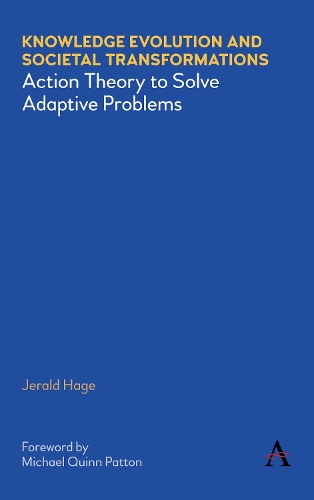
Knowledge Evolution and Societal Transformations: Action Theory to Solve Adaptive Problems
(Paperback)
Available Formats
Publishing Details
Knowledge Evolution and Societal Transformations: Action Theory to Solve Adaptive Problems
By (Author) Jerald Hage
Foreword by Michael Quinn Patton
Anthem Press
Anthem Press
5th April 2022
United Kingdom
Classifications
Professional and Scholarly
Non Fiction
Research and development management
Cultural studies: customs and traditions
306.42
Physical Properties
Paperback
418
Width 153mm, Height 229mm, Spine 26mm
454g
Description
A new paradigm that synthesises existing social science theories
Knowledge evolution punctuates the previous equilibrium of society and requires us to develop adaptive solutions. One new rule is that as the discovery of new knowledge grows more difficult, more complex organisational and institutional arrangements have to be adopted. Knowledge growth is accelerating because not only are there more creative individuals and organisations developing radical innovations, but also innovative regions are facilitating both of these trends. The discussion of four social regions and the kinds of selves produced help explain partisan divides and integrate the social psychological literature. The growth in knowledge produces two kinds of social changes: In the nature of the social structure and the kinds of institutional problems that have to be solved. The discussion of changes in the stratification system, in the choice of organisational form, and in the spread of inter-organisational networks with tight connections (heterogeneous social capital) allows us to update Marx, Weber, and Durkheim. The new adaptive problems include growing inefficiencies in labor, product, and public markets and the failure of many existing programs. The proposed solutions are the creation of coordinated systemic networks in each of these areas, which integrates the comparative institutional literature, neoclassical economics, and political science.
Author Bio
Jerald Hage has spent his professional life combining theory and research to solve individual, organizational, and societal problems. He has published 17 books and over 100 articles on the themes of organizational innovation, science and technology, post-industrial lives, the active state, and systemic coordinated networks. He has also taught and consulted in a number of countries.
